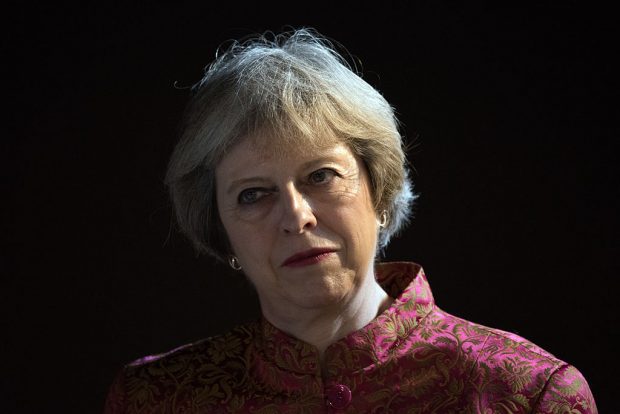Theresa May is launching yet another attempt to define herself as a politician today with a major speech on tackling the ‘hidden injustices’ of mental illness. The Prime Minister has won plaudits for taking on an issue which often gets ignored, says the Daily Telegraph. Yet it’s true that we have been here before, the paper says – pointing out that David Cameron made a similar pledge only a year ago. So what’s different? The Telegraph says there are ‘obvious benefits’ to May’s strategy to finally get to grips with this issue. But with the NHS in such a mess, her targets will be ‘hard to achieve’. There’s little doubt, the paper argues, that with a growing and ageing population, the strain on the health service will get worse over the coming years. So how should May improve mental health services while attempting to prop up the NHS? Chucking money at the problem isn’t enough, the Telegraph says. Instead, it’s time for a ‘complete rethink’ of the way all healthcare services – including those helping people with mental health issues – are funded. This ‘cannot be ducked any longer,’ the Telegraph concludes by saying.
The Times says its true that the provisions for youngsters with mental health problems are ’appalling’. ‘Half of all problems start by the age of 14’, the paper points out, ‘but on average it takes 110 days before even a seriously ill child is offered treatment’. So the fact Mrs May is talking about this subject today is good news. For a PM who has tried to make a Britain that works for everyone her goal, Theresa May needs her ‘social compassion’ agenda to succeed – and dealing with an issue which affects so many hundreds of thousands of children and their families is a good place to start. The Times says that policies such as training to help employers and teachers spot the early signs of mental health issues, and better diagnosis, too, are welcome steps along the way. After all, ‘the cost to our nation’s happiness and wellbeing is incalculable,’ the paper says.
Elsewhere, the FT says that Donald Trump offers an opportunity for Theresa May. While other leaders around the world approach Trump’s upcoming inauguration with caution, May has a chance to do something different – and embrace Trump. The potential benefit of doing so is obvious, says the FT: ‘creating a bond with the new president could boost her limited credentials as an international leader’. It’s true, after all, that in recent years, Britain’s relationship with the rest of the world has largely hinged on being members of the EU and having a special relationship with the US. With Brexit putting paid to the first of these the FT argues that ‘May cannot afford to damage the other’. It says that it’s obvious that the UK does have something to offer Trump’s America, in particular on ‘intelligence and security’: ‘two core areas of interest to Mr Trump’. And if she can use areas such as this to influence Trump, she may also succeed in urging him to have a re-think about his attitude towards Nato. Finally though, the FT says May mustn’t be fooled. Trump is likely to ‘use the UK as long as it suits him’. In her dealings with the president elect, May ‘will have to be equally hard-headed,’ the paper concludes.
Meanwhile, the Sun and the Daily Mail both continue their campaigns against state regulation of the press. In its damning editorial, the Sun urges its readers not to listen to the claims of ‘leftie luvvies’ and instead remember that ‘speech must be kept free — not regulated by prejudiced campaigners who want to bankrupt the papers they disapprove of’. The Sun says there are two sides in this argument: the ‘state-backed regulator Impress’ which is supported by a ‘host of vindictive celebs’. And then, on the other, there’s ‘every national publication, (and) every local newspaper in the country, and the vast majority of journalists’. Time is running out, the Sun says, ahead of the government’s deadline tomorrow on consulting the public on this issue.
The Daily Mail says ‘no country can call itself a true democracy without independent media’. Yet in Britain that media is coming under attack. Some of these threats we can do little about: commercially, for instance, local newspapers are shutting up shop up and down the country as a result of advertising squeezes. There’s also the danger from ‘left-wing’ groups such as ‘Stop Funding Hate’ which are trying to get advertisers not to promote their wares in certain newspapers. But the Mail says the biggest danger to Britain’s free press is the ‘insidious (one) posed by Section 40 of the Crime and Courts Act’. It says the concept of this legislation – that newspapers would pay court costs, even if they won a case – would hand ’crooks, chancers and the corrupt a formidable weapon to silence criticism and continue their wrongdoing’. The Mail calls on readers to ‘make your voice heard’ before its too late and sign the Government’s consultation.







Comments